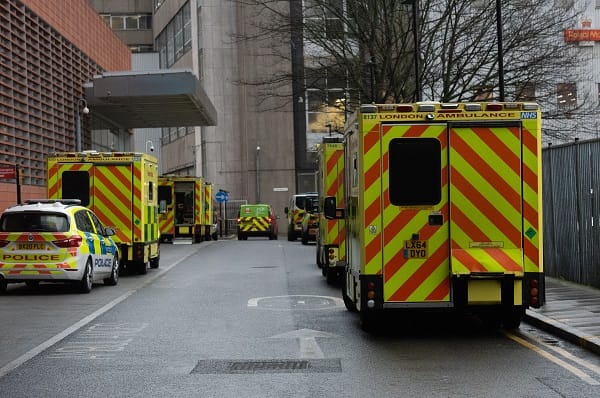Health inspectors have delivered a damning report that ambulance staff have not “always” had access to “critical medicines.”
The Care Quality Commission (CQC) said that ambulance staff were frequently responding to emergencies with not enough medicines.
The CQC found that some crews from North East Ambulance Service (NEAS) did not even have enough time to complete vehicle medicine checks.
The CQC report also found there was medicine missing, discrepancies in medicine and wrongly tagged medicines in bags and that there had been a “deterioration” of services, and rated emergency and urgent cases as “inadequate.”
Read more related news:
Thousands of ambulance staff to strike and ‘Ministers must stop fobbing the public off with promises of a better NHS’
North West ambulance workers ‘are angry’ as Ministers are ‘belittling our efforts to save lives’
Waiting lists fall but ambulance response times and A&E waiting times are the worst since records began
Millions of Brits would drive to hospital as trust in Ambulance Service is eroded
The CQC said that overall the rating is such they require “improvement,” but NEAS said they had faced “unprecedented pressures” the past year and they are “committed to making improvements.”
Sarah Dronsfield, CQC’s deputy director of operations in the north, said, “We found a deterioration in the services being provided, especially in urgent and emergency care where this had potential for people to be placed at risk of harm.
“It was particularly concerning that staff didn’t always have access to critical medicines needed to treat patients and some crews didn’t have time to complete vehicle medicine checks, resulting in treatment delays.
“Staff told us they frequently responded to emergencies without the sufficient quantities of standard medicines they needed to treat common or life-threatening conditions, including morphine and seizure medication.”
Dronsfield added, “Through engagement with the trust we know they have taken our concerns seriously and have put in measures to address our findings.
“We are mindful that ambulance services are operating under increased pressure and we are pleased the trust is keen to make the necessary improvements.”
Helen Ray, NEAS chief executive, said, “Over the last 12 months the ambulance service and the NHS as a whole has faced unprecedented pressures, the likes of which we’ve never experienced.
“Providing the best possible care to all our patients remains our top priority. We are all committed to making improvements until we and the CQC are confident that the concerns raised have been fully addressed.
“In the six months since the first inspection, we have taken swift action and subsequently provided additional assurance to the CQC that the work will ensure effective systems are in place to keep patients safe. We recognise there is more to do and are committed to longer term change as well as a short-term response.
“I am pleased that throughout the report, the dedication, care and commitment provided by all our staff is recognised and acknowledged by the CQC. Our teams continue to deliver the best care possible in these exceptional times.”






Leave a Comment